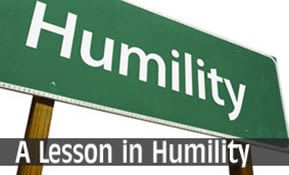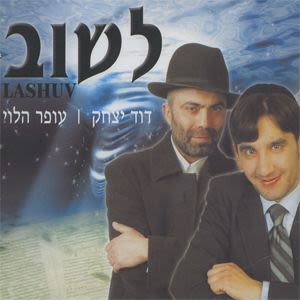
Parshat Ha’azinu
This week’s Portion contains the “Song” of which the Torah spoke in the previous chapter: “So now, write this song for yourselves, and teach it...

“Give ear, O heavens, and I will speak; and may the earth hear the words of my mouth.”
The Witnesses
This week’s Portion contains the “Song” of which the Torah spoke in the previous chapter: “So now, write this song for yourselves, and teach it to the Children of Israel, place it in their mouths, so that this song shall be for Me a witness against the Children of Israel.” The Song was Moses’ parting address from the Jewish people. He rebuked them and gave them ethical exhortation, and warned them of the consequences that would befall them if they didn’t keep the Torah in the Holy Land. He informed them that despite the expected punishment, G-d would deal with them with mercy and love and save them from their enemies.
Moses turned to the heavens and the earth as witnesses to his words: “Give ear, O heavens, and I will speak; and may the earth hear the words of my mouth.” How could mere flesh and blood command the very heavens and earth? The answer is we find Moses continued, saying: “When I pronounce Hashem’s name, give greatness to our G-d.” He was not asking anything for himself; he commanded heaven and earth only for the glory of G-d. When a person does something for the sake of Heaven he can rule over the entire creation, for everything is obligated to honor G-d.
Why did Moses choose heaven and earth as his witnesses?
Rashi wrote: “Give ear, O heavens” – “That I admonish the Israelites, so that you may serve as witnesses to the matter. For so I informed them — that you would be witnesses. Similarly, "let the earth hear." Why did he designate to testify against them heaven and earth? Moshe said, "I am only mortal, and tomorrow I may die. In case the Israelites declare, ‘We never assumed responsibility for fulfilling the covenant,’ who will refute them?" He therefore designated to testify against them, heaven and earth, witnesses who endure forever. Furthermore, so that if they so merit, the witnesses may come and reward them — "The grapevine shall give forth its fruit, the earth give forth its produce, and the heavens give forth their dew." And if they are blameworthy, the hand of the witnesses may afflict them first — "He shall curb heaven, so that there will be no rain, and the earth shall not give forth its produce." And after —"You shall quickly perish," through the Gentile nations.”
Heaven and earth are two different systems. Earth symbolizes the materialistic side of nature and its laws, whereas heaven symbolizes the spiritual side of faith and holiness that rises above earthiness and materialism. People tend to distinguish between spiritual and physical, heaven and earth. The Torah unites heaven and earth, what is above man’s head and below his feet are connected in Moses’ command to be witnesses: “Give ear, O heavens…may the earth hear the words of my mouth.” They become physical and spiritual testimony, united, together.
Usually the Parsha of Ha’azinu is read on Shabbos Shuva, in the Ten Days of Repentance, connected to Rosh Hashana and Yom Kippur. At this time everyone is seeking blessing for the New Year – a blessing of livelihood, health, children, Heavenly mercy and repentance. If we ask for our needs for the honor of heaven we will receive whatever we ask for in a great measure. We want a good livelihood so we can raise our children and educate them in the path of Torah and Mitzvot. We want health so we will have strength to learn Torah and do Mitzvot. Our intention in our requests should be for the sake of Heaven, from the depths of our heart. Rabbi Elimelech of Leijinsk (the author of the “Noam Elimelech”) said: “Just as rain and dew fall on the earth not for their benefit, rather for the benefit of the entire world, we also have to understand that our requests should be not for our benefit, rather for the honor of Heaven and to bring the many to righteousness, as we find Moses did, in order to honor Heaven.”
The Song of the Torah – The Song of Rebuke
The Song contains a historical survey of the Children of Israel from the time of the Exodus from Egypt until their inheritance of the Promised Land, and continues with a description of their negative behavior in the Land: “Jeshurun became fat and kicked. You became fat, you became thick, you became corpulent – and it deserted G-d its Maker, and was contemptuous of the Rock of its salvation…You ignored the Rock Who gave birth to you, and forgot G-d Who brought you forth.” The Song follows with a description of the calamity that will befall the nation when G-d hides His face from it, as a consequence of its sins. The end of the Song promises that G-d will have pity on His people, upon His sons and daughters “when He sees that the enemy power progresses, and none is saved or assisted.” He will redeem them, and afflict their enemies, “He will bring retribution upon His foes, and he will appease His land and His people.”
G-d’s response to the slumber and betrayal of His nation is presented in the Song: “They provoked Me with a non-god, angered me with their vanities; so shall I provoke them with a non-people, with a vile nation shall I anger them.” Let us examine how this response differs from G-d’s response to the nation’s treachery recorded in other sections of the Torah.
In the “Great Rebuke” in Parshat “Ki Tavo” the Torah warns (Devarim 28, 49-52): “G-d will raise upon you a nation from afar from the end of the earth, as the eagle soars, a nation whose language you will not hear. A hard-faced nation that will not show favor to the old, and will not pity the young. They will consume the offspring of your animals, and the produce of your soil until you are destroyed; that will not leave you grain, wine, or oil, the calves of your cattle, or the flocks of your sheep and goats until they have you removed. They will make you suffer in all your cities until mastering your ramparts and fortified walls upon which you rely throughout your land; they will make you suffer in all your cities throughout your land that Hashem, your G-d, has given you.” In the rebuke of the Book of Vayikra in Parshat “Bechukotai” the Torah also warns of a defeat by the hands of a foreign nation (Vayikra 26:17): “I will set my face against you and you will be defeated before your enemies; your foes will rule over you and you will flee [even] when no one is pursuing you.”
What is the difference between the enemy in the Song, “a non-people…a vile nation,” and the enemy mentioned in the Rebukes?
First we must understand what is meant by a “vile nation.” In Psalms it is written (Chapter 14): “The vile man says in his heart, ‘There is no G-d!’ They have corrupted and made abominable their actions, there is no doer of good.” This verse teaches us that the vile man is one who says, “There is no G-d,” and as a result he is corrupt, abominable and does no good. Not every evildoer is called “vile” in the language of the Torah. He may be called wicked or the like, but not vile. This term is used only for one whose wicked deeds result from his denial of the existence of G-d, or a denial of His Providence or His knowledge of man’s actions. A person who scoffs, mocks or blasphemies may be called vile.
When the Torah uses the expression “with a vile nation shall I anger them” we understand that it is speaking of another type of nation than those mentioned in the Rebukes of Devarim and Vayikra, where the Torahs speaks of “enemy,” “nation” or “foe.” These enemies were not called vile, because they were not predicated on atheism. They served idols and bowed to wood and stone, but were not antagonistic to the existence of G-d. In regards to idol worship Maimonides writes: “All those who worshiped idols did not do so out of a conviction there was no other god. They never imagined in the previous generations nor will they ever imagine that the idol formed out of wood or stone created heaven and earth. They worshipped the idol out of the premise that it was an intermediary between man and G-d.” Based on this we see that the nations mentioned in the Rebukes are cruel or wicked, but not vile. The nation mentioned in Ha’azinu, who was prophesized to make a Holocaust against the Jewish people, is an atheistic nation who rebels against G-d, it scorns and mocks G-d and sees no need to even regard His existence. Rashi captures this idea in a few short words in his classic commentary: “a vile nation” – these are the atheists.
It is no coincidence that the type of nation mentioned in Ha’azinu is different from the type mentioned in the others Rebukes in the Torah, because the sin of the Jewish people mentioned in Ha’azinu is different than those other Portions. In the Great Rebuke of Parshas Ki Savo it is warned what will occur if the nation does not hearken to G-d, fulfill His commandments and walk in His way.
However, our Parsha doesn’t speak about non-observance of the commandments or not listening to G-d. Here it states: “And it deserted G-d its Maker, and was contemptuous of the Rock of its salvation.” The Hebrew root of the term “contemptuous” – nabeil – is the same as that of “vile” – novol. The parallel terminology is striking. The Song parallels the phrase “was contemptuous” with the phrase “it deserted G-d,” which refers to atheism and the desire to hide from G-d. The Song refers to unconventional types of idol worship as well: “They would provoke His jealousy with strangers, they would anger Him with abominations. They would slaughter to demons without power, gods whom they knew not.” This would seem to point to the same conclusion: The Jewish people did not turn to regular idol worship, which served as an intermediary between man and the unseen G-d. They turned to new and unknown gods, who weren’t in the “registry of idols.” For this reason Israel is referred to in the Song as a “vile and unwise people.” If it was wise it would have known: “Is He not your Father, your Master? Has He not created you and firmed you?” But when the nation deserts G-d, not only are they hiding from the truth, they are “vile.”
We see how Torah predicts consequences that are measure for measure. The nation chose to be vile and desert G-d its Maker, and a “vile nation” will be sent whose intention is to anger G-d and bring about a calamity.
Near the end of the Song G-d says to the nation (Verse 39): “See, now, that I, I am He – and no god is with Me. I put to death and I bring life, I struck down and I will heal, and there is no rescuer from My hand.” The uniqueness of this passage seems to lie in the repetition of the word: “I” – G-d is He, He puts to death, He brings life, He strikes and He heals, He is everything and there is nothing besides Him. This announcement is the message and lesson the nation must take out of the calamity that the Song predicts. The main sin was denial of the Creator, because the meaning of “vile” is atheism, and the lesson we must take with us is: There is none besides Him.
An Example of How to Give Rebuke
In our Parsha the Jewish people received rebuke in the form of a song, poetry, which served to sweeten the rebuke. It’s easier to accept rebuke when it’s said gently and not directly and bluntly. Moses said (Devarim 32:2): “May my teachings drop like the rain, may my utterance flow like the dew.” The word of G-d is compared to the sweet rain which causes the growth of pleasures and delights, as if to say, “See how much I want to shower you with blessing. And you, the Nation of Israel, need to fulfill the verse: ‘Give greatness to our G-d,’ love G-d with all your strength. Don’t act foolishly and unthinkingly. G-d, who loves the Jewish people and gives them infinite kindnesses despite their chasing after physical desires and other foolishness, will continue to love His nation without limit.”
This teaches us that whenever someone gives rebuke to his fellow man or to a congregation, he must present his words gently, softly and pleasantly, so they will accept and internalize his message. Rebuke said angrily, harshly or bluntly may insult, and will certainly miss the target. Moses rebuked the people in a way of beseeching, in an effective manner that would bear fruit in the hearts of the Jewish people, as the rain and dew quench the thirst of the soil and cause vegetation to sprout for all of G-d’s creatures.
“Like storm winds upon vegetation and like raindrops upon blades of grass.” (32:2). Words of Torah elevate the ones who learn it and cause them to grow. Even though the results may not be immediately apparent and may have no influence at the moment they were heard, still, Torah’s influence is always positive and it will affect us in the course of our lives. Rashi explains: “Just as the storm winds strengthen the vegetation and cause it to grow, so too the words of Torah cause a person to grow.”
Desire and Gratitude
Our Sages taught that when it comes to materialistic things one has desire and longing only as long as the thing is out of his grasp, but once he attains it he loses the desire; the satisfaction comes only in first attaining the object of his desire, but not in owning it. In spiritual matters, however, it’s another thing altogether. The more he learns Torah and enriches his spirituality, the more his desire and longing increase. The satisfaction comes after he has actualized his spiritual goals and remains with him forever. This causes him to thank G-d out of his free will and love, which is not the case with material success – he may not remember to thank G-d at all.
A person must always thank G-d and view whatever happens to him as just. Moses taught the Jewish people to accept whatever happens to them in love. G-d judges righteously, because everything that He does is only for the best.
“The Rock – perfect is His work” (32:4); Rashi comments: “Despite G-d’s infinite strength, His judgment is exact and fair. When he brings punishment on those who transgress His will, He doesn’t punish completely at once, for ‘perfect is His work.’” We don’t need to wonder about the ways of G-d even though we don’t understand them; we must believe without a shadow of doubt that all His ways are just and righteous, because a limited human being simply doesn’t have the ability to judge if they are good or not.
“The Rock – perfect is His work, for all His paths are justice; a G-d of faith without iniquity, righteous and fair is He.” (32:4). He rewards the righteous, even though their reward may be slow in coming, and He rewards even the wicked for whatever good they may do, because “righteous and fair is He.” Everyone accepts G-d’s judgment because He is fair and it’s fitting to declare His righteousness. (Rashi).
The Conclusion of the Song
The Song of Ha’azinu describes the terrible suffering of exile. The progression of the Song ends in a surprising way. It would seem that the conclusion should be a call for repentance, but that is not the way it is. Nachmanides writes in his commentary: “The Song does not make the future redemption conditional on repentance and the service of G-d.” G-d is guiding His people and will not tolerate the wicked nations that harm the Children of Israel, and He will exact vengeance on their behalf by means of the Land of Israel: “And He will appease His Land – His people.” (Chapter 32:43). The Land of Israel atones for the transgressions of the Jew. Rashi writes: “And what is ‘His Land’ – it refers to His people. When G-d’s people are comforted, His Land is comforted as well.” When His people are redeemed, His Land is redeemed as well. The Jewish people are redeemed not only out of their merits, but also in the merit of the Land of Israel.
“Apply your hearts to all the words that I testify against you today…to be careful to perform all the words of this Torah.” (Chapter 32:46). Says Rashi: “A man’s eyes and ears must be completely attuned to the words of Torah.”
“For it is not an empty thing for you, for it is your life, and through this matter shall you prolong your days on the Land…” (32:47). Your efforts to master and obey the Torah are not empty, great reward depends on it, “for it is your life.” (Rashi).











Tell us what you think!
Thank you for your comment!
It will be published after approval by the Editor.